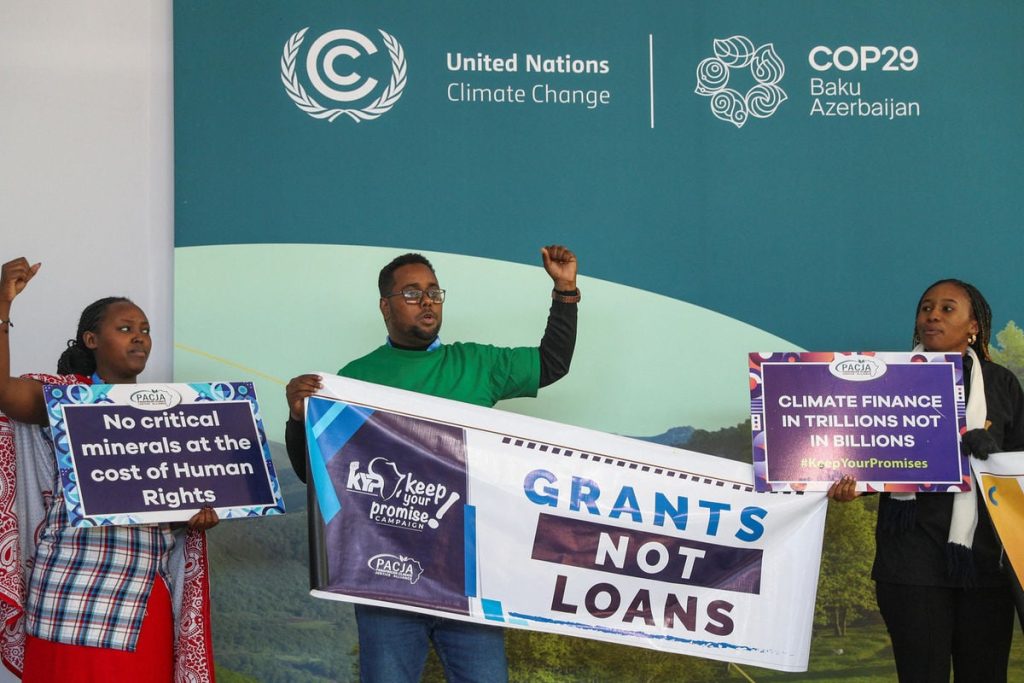Nations at the COP29 climate summit in Baku have agreed to a $300 billion annual target to support developing countries in tackling the effects of climate change.
While the agreement – to begin in 2025 and run until 2035 – was welcomed as progress by some, many poorer nations criticised it as far from adequate.
The deal, finalised after extended negotiations at the two-week conference, aims to address the growing financial needs of vulnerable nations struggling with climate-related disasters.
However, tensions ran high, with some delegations walking out during earlier sessions in frustration over what they saw as insufficient commitments from wealthier nations.
“This document is nothing more than an optical illusion,” said Chandni Raina, a representative of India, during the summit’s closing session.
“This, in our opinion, will not address the enormity of the challenge we all face. Therefore, we oppose the adoption of this document.”

Climate Finance and Rising Divisions
The new target builds on an earlier $100 billion annual pledge by developed nations, which was met two years late in 2022.
The $300 billion figure includes contributions from public and private sources, with the broader goal of mobilising $1.3 trillion annually by 2035. However, developing nations argue that the funding still falls short of what is required to combat rising climate threats.
UN climate chief Simon Stiell called the agreement “an insurance policy for humanity” against global warming, but cautioned that its success depends on timely and full contributions.
“It has been a difficult journey, but we’ve delivered a deal. This deal will keep the clean energy boom growing and protect billions of lives.
“But like any insurance policy, it only works if the premiums are paid in full, and on time,” Stiell said.
Unmet Challenges and Future Plans
The deal leaves unresolved questions about phasing out fossil fuels and scaling up renewable energy, which were priorities set at previous summits.
Some negotiators pointed to resistance from countries like Saudi Arabia during discussions.
The agreement also highlights ongoing disputes over which nations should contribute more.
Developed countries, including the US and European nations, urged emerging economies like China and Gulf states to increase their share of funding.
The COP30 summit in Brazil next year will aim to finalise a roadmap for climate action over the next decade.


